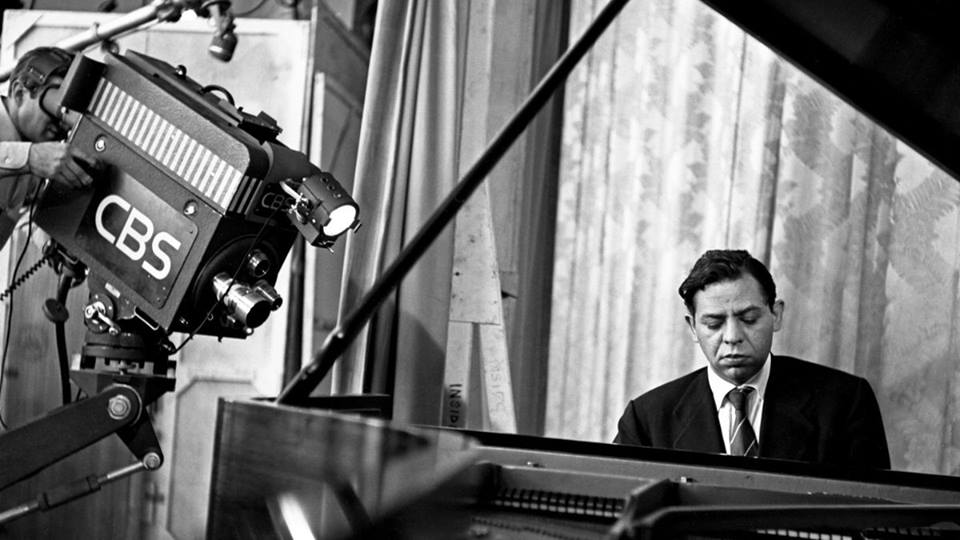My latest essay for Commentary, in which I discuss the complicated career and unhappy life of Oscar Levant, is now on line. Here’s an excerpt.
* * *
Oscar Levant vanished into the memory hole of popular culture within a few years of his death in 1972. If he is known at all today, it is as the sardonic piano-playing sidekick he portrayed in a dozen movies of the ’40s and ’50s, most famously with Gene Kelly in An American in Paris (1951) and Fred Astaire in The Band Wagon (1953). Because these screen appearances are now his sole claim on posterity, it came as a surprise when Sony Classical released A Rhapsody in Blue: The Extraordinary Life of Oscar Levant last fall. This eight-CD boxed set contains the hundred-odd recordings that he made as a pianist between 1941 and 1958…

Beyond the mere fact of its existence, what is most remarkable about A Rhapsody in Blue is the nature of its contents. It includes all four of George Gershwin’s concert works for piano and orchestra, of which Levant was an admired interpreter, but the rest of the set is devoted to music by classical composers, including solo pieces by Bach, Beethoven, Brahms, Chopin, Copland, Debussy, Liszt, Poulenc, Prokofiev, Rachmaninoff, Ravel, Schumann, and Shostakovich…
That Levant recorded so extensively as a classical pianist will startle anyone who knows only his films. It is likely to be just as startling, however, to those who also remember that he once appeared regularly on such radio and TV series as Information Please and the Jack Paar–hosted version of The Tonight Show, on which he “played” a version of his real-life self, a wisecracking neurotic who bragged about his mental instability (“I have seizures of momentary sanity”) and, later, his psychiatric hospitalizations….
To read about Levant is to be struck by how his seeming compulsion to blurt the details of his mental illnesses into the nearest microphone foreshadowed the modern-day “oversharers” who chronicle each twist and turn of their private lives. Even so, there was more to him than his madness, and the story of his career as a musician, sometime actor, and media figure avant la lettre will be of interest to anyone curious about what it meant to be famous in America at midcentury….
* * *
Read the whole thing here.Oscar Levant plays Brahms’ A Major Intermezzo, Op. 118/2, in 1947:
A scene from Vincente Minnelli’s The Cobweb, in which Oscar Levant played a patient in a mental hospital:
